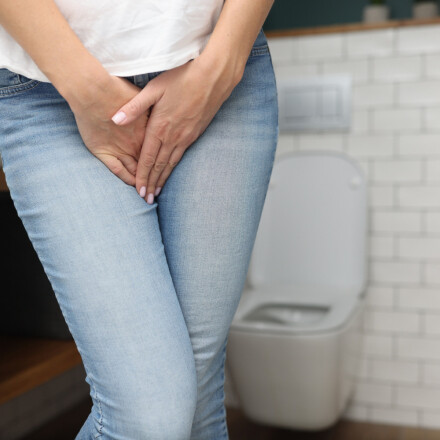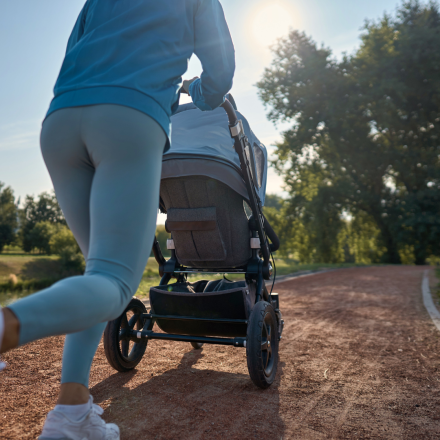Read more about:

Pregnancy discomfort
Not just a pink cloud
During but also after your pregnancy, your body is subject to various changes. This is not surprising. You and your body have had to work hard to bring a child into the world.
Unfortunately, not all changes are fun, sometimes even painful or "embarrassing" problems arise. A lot of women suffer from certain discomforts. Below you can read about the most common discomforts and also what possible solutions there are.
Your primary care physician is your first point of contact for questions or complaints about your health. If the family doctor feels you need specialist care, he or she will refer you.

Urinary incontinence
Unwanted urine leakage occurs to a greater or lesser extent in one in four women over the age of 30. Urinary leakage from just coughing or sneezing is manageable, but when you can no longer play and frolic with your children carefree or are hampered when playing sports, it is a good reason to raise the alarm.
Pelvic physical therapy, medication and minor surgery are among the solutions to your problems. Depending on the degree of urinary incontinence, our specialists will work with you to determine the best treatment.

Sag
Your pelvic floor may be damaged during childbirth. Sometimes pelvic floor damage results in prolapse, which can lead to dissatisfaction or even embarrassment about how the genitals look. Often the symptoms are mild, making treatment unnecessary. It is important to know that should the symptoms be bothersome, there are many possible solutions.
For the vast majority of women, exercise therapy or a pessary is sufficient. More severe prolapse sometimes requires surgery.

Hemorrhoids
About 85% of all women experience hemorrhoids during pregnancy. Hemorrhoids can cause itching and pain in the anus, and it is one of the most annoying pregnancy ailments. Fortunately, this is easily remedied. In any case, don't be ashamed to make an appointment with your doctor. They regularly see people with the same problem.
Lifestyle and dietary advice, Barron's ligature and surgical treatment are among the options. Depending on the severity of the hemorrhoids, our specialists will work with you to determine the best treatment.

Varicose veins
During pregnancy, uterine growth and hormone changes can cause varicose veins due to increased pressure on the pelvic veins and weaker connective tissue. These varicose veins are sometimes visible and can cause symptoms. After childbirth, the veins may return to their normal shape. It is recommended to wait at least 6 months after pregnancy before any treatment to allow for recovery. If recovery is not forthcoming, treatment may be considered.
EVLT treatment, sclerocompression therapy, phlebectomy according to Müller or perforantectomy are possible treatments. Depending on the size of the varicose veins, our specialists will work with you to determine which treatment is best.

